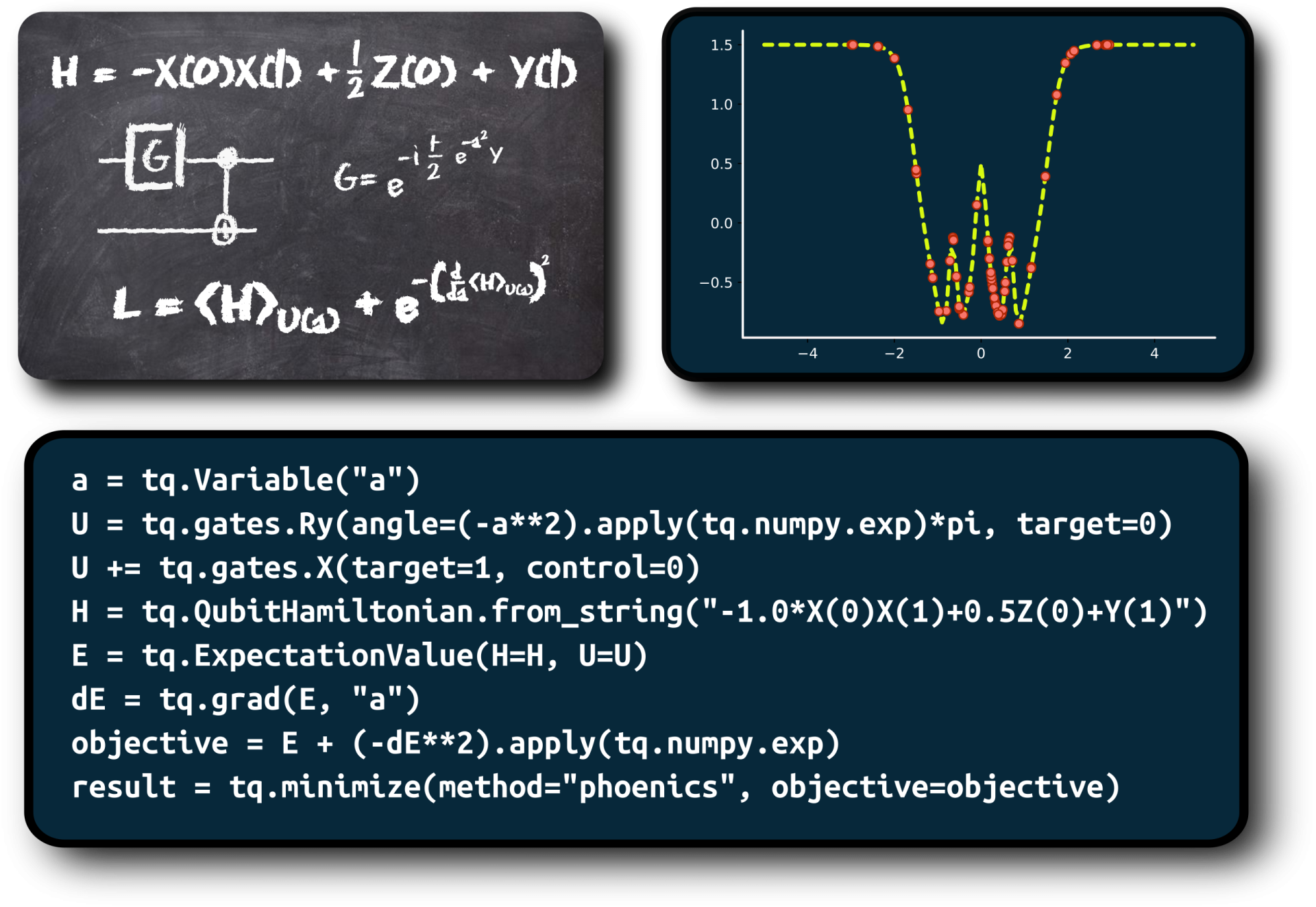Tequila is an open-source tool designed to enable the rapid development and demonstration of new ideas in quantum computation, particularly in the area of variational algorithms. It offers users the option of treating quantum computers as black-box samplers of abstract expectation values or having more direct control over their use.
What is Tequila?
Tequila is a development package for quantum algorithms in Python that is designed to facilitate the implementation, prototyping, and deployment of new quantum algorithms in various fields, including electronic structure. It allows for creating abstract expectation values that can be combined, transformed, differentiated, and optimized. These conceptual structures can be compiled and run on state-of-the-art quantum simulators or interfaces. Tequila is intended to be a flexible and reliable tool for developing quantum algorithms, particularly in variational quantum algorithms. These are considered the most promising for use on near-term quantum computers.
Summary points of the Tequila Quantum Package
- Tequila is software development kit for quantum algorithms focused on abstraction.
- It allows to define of abstract functions from combinations of quantum expectation values.
- Frontend and “blackboard-style” API are inspired by madness.
- Backend-agnostic implementation is inspired by penny lane.
- Tequila leverages libraries like OpenFermion, Qulacs, Jax, SciPy and many more.
Variational quantum algorithms
Variational algorithms involve finding the optimal solution to a problem by minimizing an objective function, known as the variational energy, using an iterative optimization process. These algorithms are commonly used in many fields, including physics, chemistry, and machine learning, to solve problems that involve finding the minimum of a complex or unknown function. In the context of quantum computing, variational algorithms are used to find the lowest-energy state of a quantum system or to perform other tasks that involve finding the optimal solution to a problem by minimizing an objective function. They are a promising class of algorithms for deployment on near-term quantum computers. They can be implemented using a limited number of quantum gates and do not require a fully error-corrected quantum computer.
Go check out the project here. https://github.com/tequilahub/tequila

